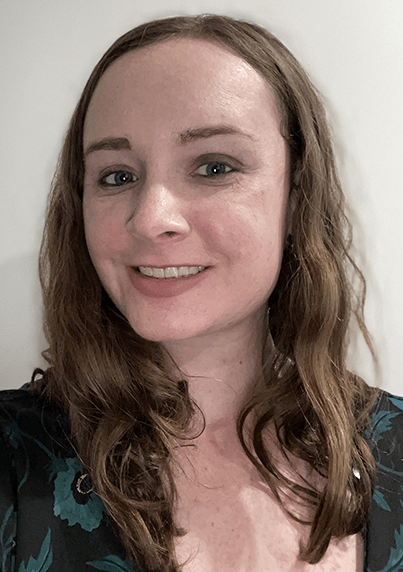 Caroline’s Story
Caroline’s Story
As anyone who lives with epilepsy knows, balancing adult life and caring for your physical and mental health can be incredibly challenging at times. I was put to the test at a young age, as my father passed away from cancer when I was 10 years old, and a mere 2 months after that I was diagnosed with tonic clonic seizures, and immediately put on Tegretol to counteract them. Some older kids bullied me for my epilepsy, even though I had it mostly under control. I was an intelligent, gifted student, and few people could see that.
Early signs of creativity
Let me go back a bit. As a child I had always loved being creative. While at pre-school as a child, I loved to draw. Crayons, finger paints, you name it. But my skills as an artist first appeared in preschool. I had drawn my own house in the background of the page, and a large squirrel sitting on a tree with a nut in its paw. When my teacher asked what it was, I had told her I imagined a shot of the squirrel, then zooming into my house with me sitting in the window. She was amazed I had managed depth perception at age 4, and that picture, however crude it may be, still hangs at that preschool today. I even started playing tennis at the age of 6, and became a well rounded player as a child.
A few wobbles but then seizure control
In high school I was an incredibly shy person, but slowly befriended the artistic kids and made it on the Varsity tennis team. I was always the odd one out, but my medication was working and it seemed like I was growing out of my epilepsy. My neurologist at the time started weening me off my meds, and everything was working out. Then one day as I was working a shift at the local movie theater, I had a seizure. My boss didn’t know what to do, and my mom came to get me. My dosage went up, seizures under control, I won awards for my artistic work, had a 100 mph serve and became one of three captains of the Varsity Tennis team. It seemed like I was going to be ok.
Lack of sleep as a seizure trigger
Fast forward to college. I started off as an animation major because I had advanced to drawing realistic pencil sketches of human faces and poses. But after my first year I realized that I couldn’t draw fast enough to make animation a viable career. So I switched to film. In that first year I didn’t have any seizures, and my medication (Tegretol) seemed to be working at the time. However I became bad about taking my meds daily and getting enough sleep every night. I was excelling in my film work and even studied abroad in London (without any seizures during that time); I was feeling pretty good (and with good reason). However, once I returned to the states and senior year came around, I was constantly on film shoots and editing footage in the computer lab for class. This led to little sleep and the occasional grand mal seizure thrown into the mix. I even had a seizure in the shower once, after 3 hours of sleep. Thankfully my roommates at the time were able to take me to the local hospital, where I was taken care of. But that experience caused me to be more cautious about taking care of myself, and thankfully I had a few years without an incident.
Taking on grad school
After graduating, the only prospect I had was an unpaid internship at a company called Project Twenty1, which did help me to expand my film network immensely. I also worked on my own short films in my spare time but was unable to secure a job that would pay me a sustainable wage. I worked at Ben & Jerry’s and Starbucks to make ends meet but working with Project Twenty1 on various webseries and short film projects was my passion. I decided I wanted to give grad school a try, as I wanted something more than the life I was living. I applied to Columbia University’s Creative Producing program on a whim, thinking my film work wouldn’t be enough, but I had nothing to lose. And miraculously, I was accepted.
I gave notice at my jobs in Philadelphia and moved to New York, close enough to campus that I could walk. I have to say, the first time I stepped through the Columbia campus gates, I did have chills. It was a new chapter of my life and I was ready for it. I started my classes, and I won’t lie, it was difficult. I was balancing assignments, odd film shoots for class at random hours, and making time to rest. The assignments alone were constant, the film shoots running 16 hours or more (depending on the scope of the project), and that doesn’t even come close to the amount of pre-production (preemptive work before a film shoot) that each film required. It’s the producer’s job to organize every minute detail on these projects. Which is a thankless job, but someone has to do it. And I relished every second. It’s rare to find a passion and get a boost of endorphins from it on an almost daily basis for roughly 2 years. I worked on over 30 shorts in various capacities during my time at Columbia and produced some 10 films of my own. I was always honest with everyone about my epilepsy the entire time, and they respected my boundary of needing at least 6 hours of sleep between shoot days to function. Which did work for a time.
A perfect storm
However, in November of my first year at Columbia, I had an unfortunate case of insomnia for about a week and made the bad decision of going to a movie early on a Saturday morning after 5 hours of sleep. And that film happened to be Interstellar, which is arguably one of the most unnecessary strobe sequence-filled movies of all time. Now I have a high tolerance for photosensitivity (which I am incredibly grateful for), and I got out of the theater perfectly fine. I was not feeling well after the film and went back to my apartment to sleep it off, as I had a hard week and deserved to rest. I took a nap, woke up, starting walking to the kitchen for a glass of water, and had a grand mal seizure in the living room. I had blacked out but my roommate (who was home at the time) called 911 and I went to the emergency room.
A reality check
I called my new neurologist at the Columbia Neurological Institute and told her about the seizure, so we scheduled an appointment. I explained my busy lifestyle in grad school to her and how I didn’t have time to rest. She was the first neurologist I ever had who told me that 1 in 1000 people die while having a seizure, and that condition is known as SUDEP. As unbelievable as it sounds, that was the first time any of my previous neurologists had told me that. And I was in my mid-twenties at the time. My neurologist switched me to Trileptal, and I started taking my meds on a regular basis while also focusing on sleep. As I was transitioning meds I had one seizure in my bed while I was sleeping, but it was an improvement from my previous medication.
I kept my seizure free streak going after that, but it isolated me from my classmates, as I couldn’t go out drinking a few times a week as they were doing on a regular basis. I tried to keep up with parties, etc., but as my mental health had deteriorated over the isolating weekends, when I attended these parties, I would vent to random people about my past traumas (which none of my classmates could relate to). I stopped being invited to parties, but it was for the best. I stepped away from my classmates socially in my second year as I realized they didn’t care about my wellbeing and were simply using me for my plethora of logistical and practical expertise. I could have spent my valuable rest time making a fourth project to produce (which most of my classmates were doing), but I didn’t because I wanted to focus on my health. And I’m glad I did.
Finding the right job
I could have done more in my third year in the program but spent my time working on film project after film project until I finished my thesis short film. I interned at a small but successful production company, and sadly taking Trileptal had caused me to gain 40 pounds over 6 months or so. I hadn’t changed my diet or anything, it just started adding on. After I graduated Columbia, I lost my health insurance and was stuck literally work at a temp agency for a year then being hired by a finance firm as an assistant to a C-suite executive. I hated that job. My superiors never utilized my potential and looked down on me for not understanding the nuances of a skill that I never trained in.
In 2018 I also developed a severe sodium deficiency and bone loss because of my medication. My new neurologist put me on Clobazam for my severe anxiety, and sodium pills to counteract the lack of sodium in my bloodstream. Going to therapy also helped immensely, and I became more confident in myself. I then started a medication transition from Trileptal to Lamictal in early 2021 and began having cognitive issues because of the change. My work at the finance firm was suffering, and my superiors noticed. I could feel I would be fired soon, so instead of having that on my resume I quit. The company never appreciated anything I did and I know I was paid much less than others in my position, so I saw it more in a positive light.
Finally on the path
I was unemployed for a month and was then recommended by a former classmate for a position and hired as an Associate Producer for events at the AMC Theater in Times Square on a freelance basis, which was a great experience. I invested in a few professional development courses (including a certificate in Diversity and Inclusion from Cornell), formed my own production company, Parker Pictures, and in February of 2022, began working as Head of Media Production at EveryGirl Enterprises. Producing written and video content for the upcoming digital magazine, while also managing interns and creating consistent workflows for the future. I’ve made friends and contacts who are encouraging me and themselves to be who we are meant to be, and I feel a sense of relief that I have not felt in years.
One year after quitting a job that I despised, I have thrived. I’m now 7 ½ years seizure free, have come into a growth period of my life that I would have dreamed of last year. I may not be making the money I would like, but I enjoy what I’m doing and living in the Big Apple with all its rich culture and history. I’m now able to be my most authentic and best self and am working towards a career that I am more than qualified for. Being creative as an able-bodied person is considered difficult, but it becomes even more so when you are disabled. You have to navigate health care, prescription costs, MRI’s, EEG’s, and sometimes brain surgery. It’s a grueling process but putting the time and energy in focusing on my health has allowed me to focus on the work I care about. And at the end of the day, that’s what is important. Being true to yourself, while also taking care of your wellbeing. It’s been hard work getting to this point, but it was definitely worth it.


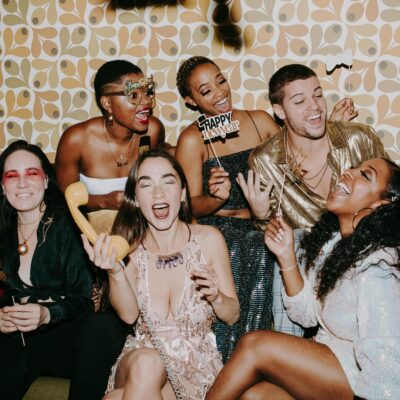
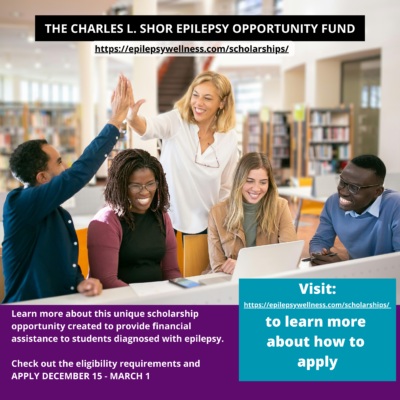


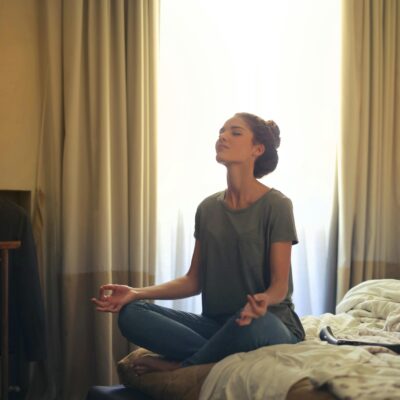
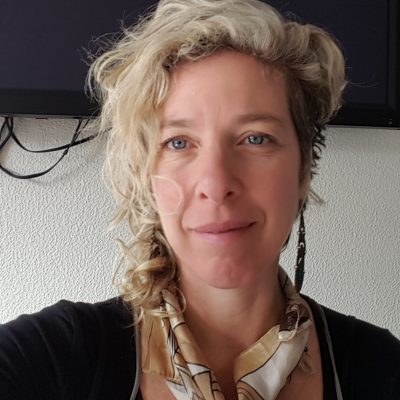
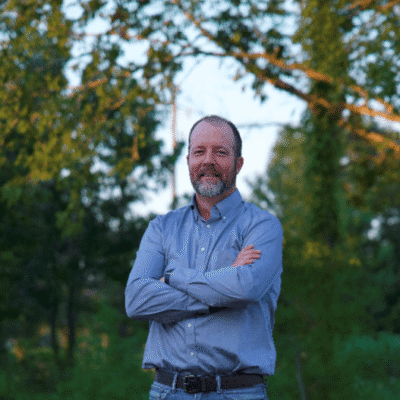
Leave a Reply